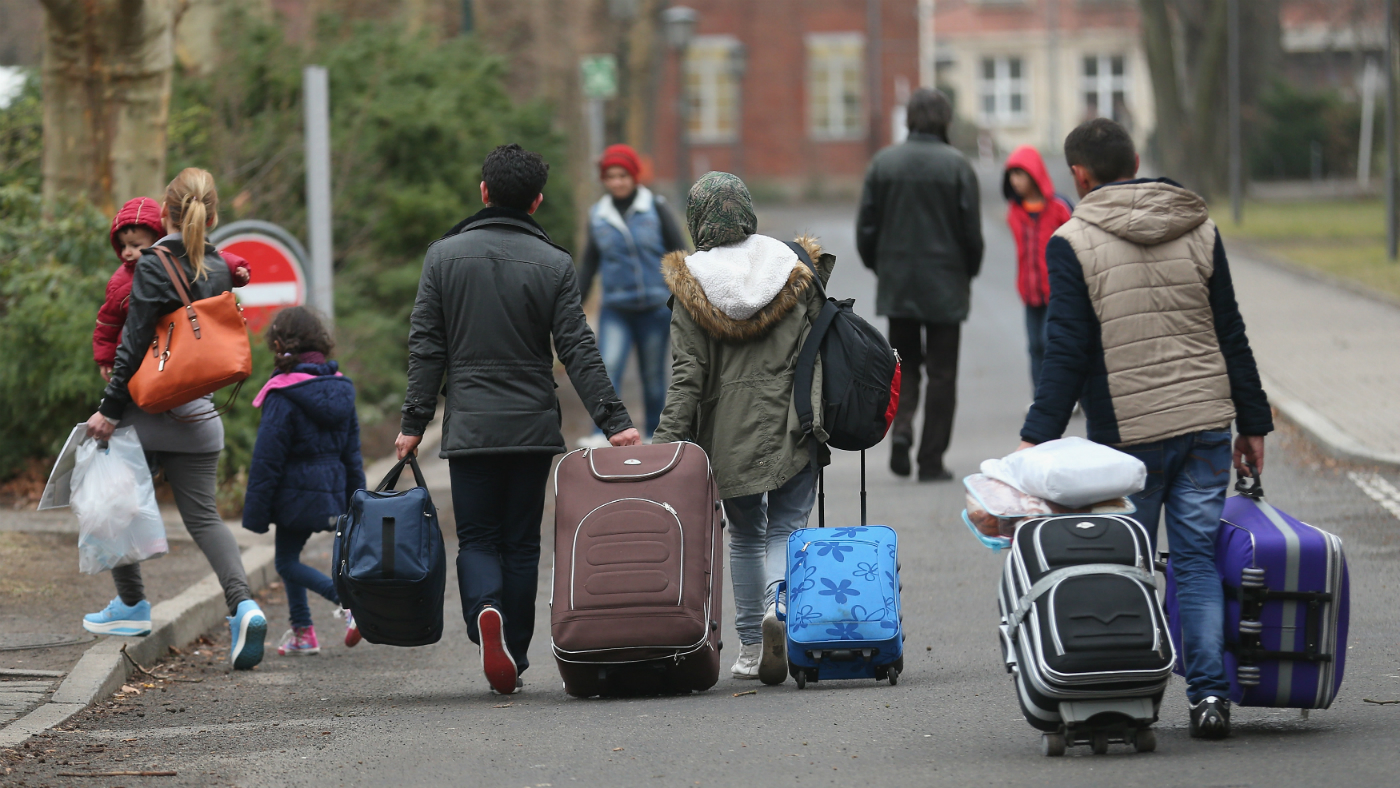Germany offers asylum seekers extra cash to go home
Refugee organisation slams government for ‘trying to entice people to give up their rights’

A free daily email with the biggest news stories of the day – and the best features from TheWeek.com
You are now subscribed
Your newsletter sign-up was successful
The German government is offering failed asylum seekers an additional cash incentive to return home, as the country struggles to deal with the ongoing migrant crisis.
For years, Germany has provided financial help for those wishing to return to their countries, “including costs associated with travel and restarting life back home”, Deutsche Welle reports.
The new programme, announced this weekend, will offer families an extra €3,000 (£2,600) and individuals up to €1,000 (£880) if they leave by the end of February.
The Week
Escape your echo chamber. Get the facts behind the news, plus analysis from multiple perspectives.

Sign up for The Week's Free Newsletters
From our morning news briefing to a weekly Good News Newsletter, get the best of The Week delivered directly to your inbox.
From our morning news briefing to a weekly Good News Newsletter, get the best of The Week delivered directly to your inbox.
The money is intended to help asylum seekers with rent and other housing costs for up to a year after returning home, interior minister Thomas de Maiziere said yesterday.
But the German refugee organisation Pro Asyl has criticised the offer, calling it an underhanded strategy to reduce the number of migrants, DW reports.
The government “is trying to entice people to give up their rights in the basest manner,” managing director Gunter Burkhardt told the German news agency DPA.
The social welfare organisation of Germany’s Protestant churches has previously warned that these “get lost” bonuses are responsible for fuelling prejudice against migrants and refugees.
A free daily email with the biggest news stories of the day – and the best features from TheWeek.com
However, some are happy to accept the offer to return home, including one Afghan family that fled to Germany in 2013 after receiving death threats by the Taliban.
“Ever since we are here, we have been having problems finding work, learning the language, and our finances were too little,” the father told DW earlier this year.
The new programme comes as Chancellor Angela Merkel struggles to form a coalition government, with immigration policy one of the sticking points in negotiations.
-
 6 exquisite homes with vast acreage
6 exquisite homes with vast acreageFeature Featuring an off-the-grid contemporary home in New Mexico and lakefront farmhouse in Massachusetts
-
 Film reviews: ‘Wuthering Heights,’ ‘Good Luck, Have Fun, Don’t Die,’ and ‘Sirat’
Film reviews: ‘Wuthering Heights,’ ‘Good Luck, Have Fun, Don’t Die,’ and ‘Sirat’Feature An inconvenient love torments a would-be couple, a gonzo time traveler seeks to save humanity from AI, and a father’s desperate search goes deeply sideways
-
 Political cartoons for February 16
Political cartoons for February 16Cartoons Monday’s political cartoons include President's Day, a valentine from the Epstein files, and more
-
 Epstein files topple law CEO, roil UK government
Epstein files topple law CEO, roil UK governmentSpeed Read Peter Mandelson, Britain’s former ambassador to the US, is caught up in the scandal
-
 Iran and US prepare to meet after skirmishes
Iran and US prepare to meet after skirmishesSpeed Read The incident comes amid heightened tensions in the Middle East
-
 Israel retrieves final hostage’s body from Gaza
Israel retrieves final hostage’s body from GazaSpeed Read The 24-year-old police officer was killed during the initial Hamas attack
-
 China’s Xi targets top general in growing purge
China’s Xi targets top general in growing purgeSpeed Read Zhang Youxia is being investigated over ‘grave violations’ of the law
-
 Panama and Canada are negotiating over a crucial copper mine
Panama and Canada are negotiating over a crucial copper mineIn the Spotlight Panama is set to make a final decision on the mine this summer
-
 Why Greenland’s natural resources are nearly impossible to mine
Why Greenland’s natural resources are nearly impossible to mineThe Explainer The country’s natural landscape makes the task extremely difficult
-
 Iran cuts internet as protests escalate
Iran cuts internet as protests escalateSpeed Reada Government buildings across the country have been set on fire
-
 US nabs ‘shadow’ tanker claimed by Russia
US nabs ‘shadow’ tanker claimed by RussiaSpeed Read The ship was one of two vessels seized by the US military